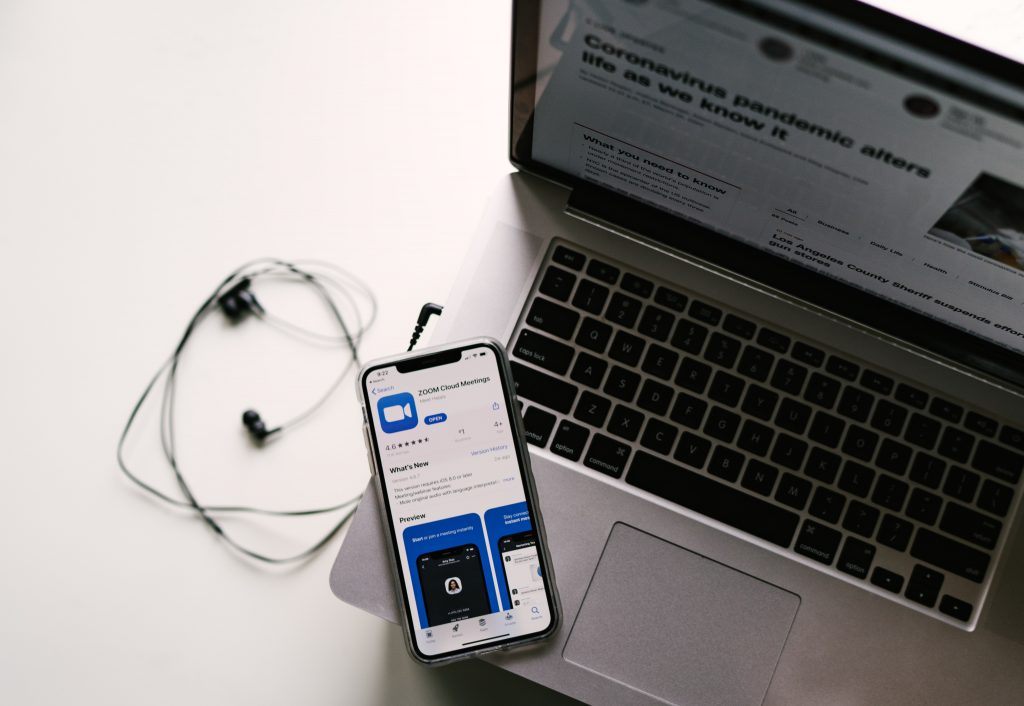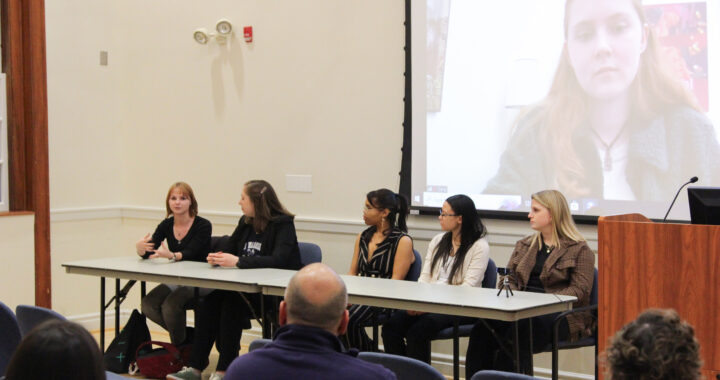Students encouraged to protect their personal data while using Zoom
3 min read
Campus resources have encouraged students to practice safe online policies following concerns over data leaks. (Photo by Allie Smith on Unsplash)
by SHANE THIN
Staff Writer
It has been over a month since UMW classes were moved online due to the spread of the coronavirus. As professors across the country transitioned their in-person classes to an online format, many opted to use a platform called Zoom over larger services such as Google Classroom, Microsoft Teams or even Twitch for lecture streaming. Recently there have been concerns over the security of students’ private data when using Zoom.
According to Business Insider, Zoom, being a relatively small company, was not ready to jump from 10 million active users to over 200 million in the first half of March. Because of this, they were accused of routing domestic calls through foreign servers and selling private user data to third parties such as Facebook. Although the former has been confirmed by multiple news sources, the latter has not and the company has insistently denied the claims. Concerning the former issue, the company acknowledged it as a mistake and has since amended the problem with a change in policy.
As of March 29, Zoom revised their privacy policy to emphasize that they do not sell personal data. However, their security has been criticized as “at best, sloppy” by Harvard’s Kennedy School lecturer and public-interest technologist, Bruce Schneier, on his personal website. A California court lawsuit on March 31 over Zoom’s inadequate security leaking personal data seems to support this statement.
On April 6, UMW’s Anna Billingsley sent out an email with Zoom security recommendations to the student body. The recommendations consisted of standard privacy tips—cover the webcam and mic when unused, use a unique password, keep the client updated—in addition to Zoom unique advice, e.g. keeping the meeting link private, having host-only screen sharing privilege, requiring host permission to join, and locking the meeting once all invited participants are in.
Billingsley’s email also included a link to best practices on the Zoom blog and a privacy article by Electronic Frontier Foundation.
Following the scrutiny and pressure, Zoom has taken the security concerns very seriously and is working on increasing their security measures. When asked for comment about Zoom’s security, Digital Knowledge Center director and HCC manager, Cartland Berge, stated that he is impressed with Zoom’s response to the privacy and security concerns.
“They have not tried to sweep the issues under the rug, but have admitted mistakes and worked to correct them quickly. They just put out an update last week that brings a lot of their security features front and center in a security button on the main tool tray,” said Berge.
With the large-scale migration of lectures online, there are an increasing number of reported instances of ‘Zoom-bombing,’ where an uninvited party joins the Zoom call, unexpectedly interrupting the lecture or meeting.
When Berge was asked if he was aware of any Zoom-bombing incidents with UMW online classes, he responded that there was only one reported case of unwanted attendees dropping in to a class meeting. The incident likely prompted the school-wide email that went out.
“Research the platform, recognize that anything you do on the internet has the chance to be accessed or used in ways you can’t predict, and make intentional decisions about how you use the platform based on that information. Use your resources: the [Digital Learning Support] website has advice on several digital teaching tools, and the DKC offers remote tutorials on Zoom,” said Berge.
Jo Sherwood, a senior communication and digital studies major, has taken the University’s advice on privacy. “I have a camera protector and most of my meetings are password protected,” said Sherwood.
Regarding privacy breaches from Zoom’s end, such as the selling data and routing through foreign servers, “I just am indifferent about it and don’t really worry about it,” Sherwood said.
Senior communication and digital studies major, Carly Grecco, works for a firm off-campus which has also been impacted by the security threats when using Zoom. “My company isn’t allowed to go on it for meetings at all,” said Grecco.
Zoom is now working to ensure that their platform will be the best option for students, faculty, and staff to stay connected in a time where physically meeting is not a viable option.











